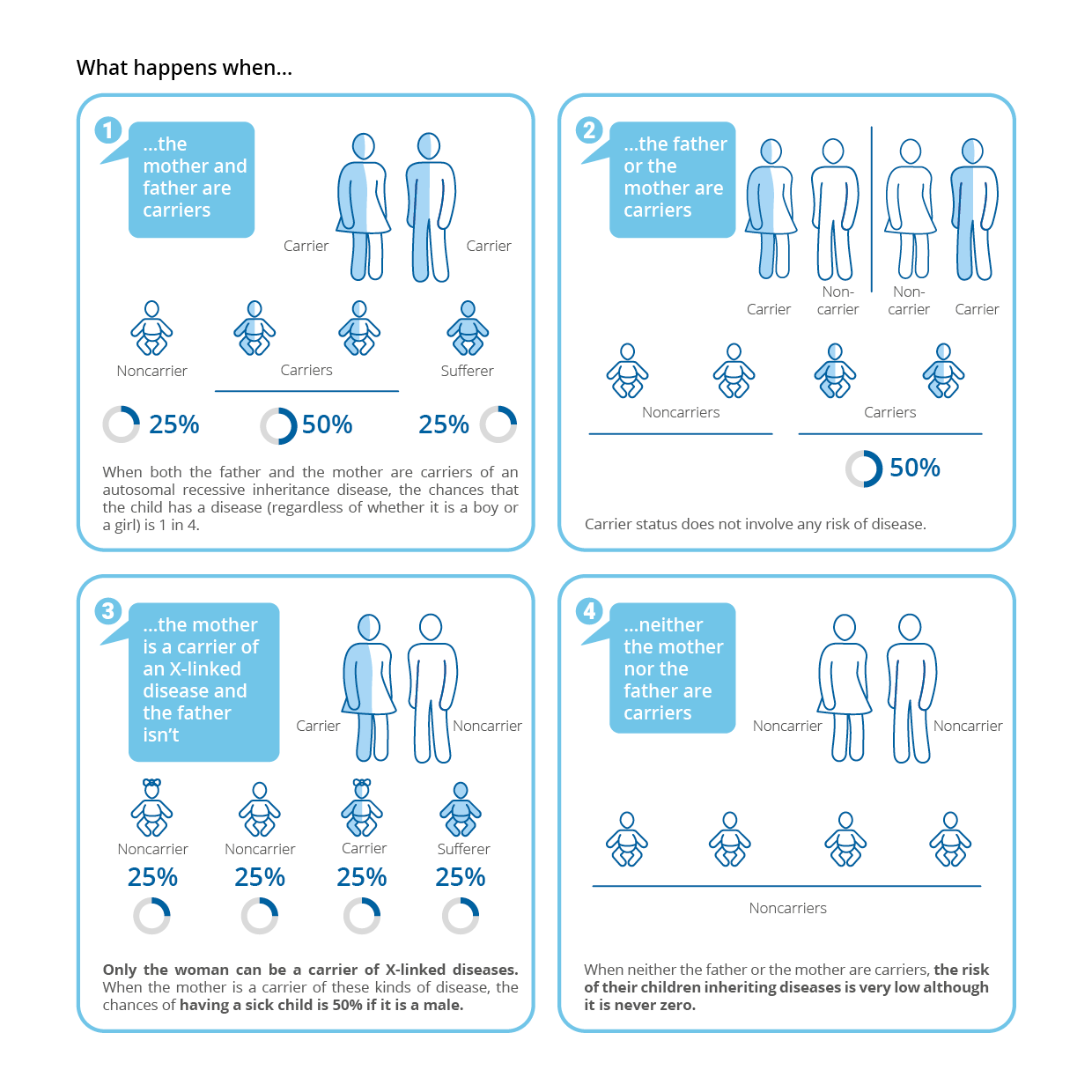Genetic carrier screening study
Detects whether the prospective parents are carriers of a genetic disease
What is it?
The genetic carrier screening study is a test that detects thousands of mutations related to hundreds of serious genetic diseases that respond to an autosomal recessive inheritance, or which are linked to the X chromosome (cystic fibrosis, spinal muscular atrophy, sensorineural hearing loss, thalassemia or sickle cell disease, among others).
Thanks to this test, future parents will know whether they are carriers of any mutation in the genes studied and will know about the risk of passing on one of these diseases to their future offspring.
Up to 80% of patients who undergo the carrier screening test, which is a study that we offer at Eugin, is a carrier of a mutation related to one of these hereditary genetic diseases. This means that they will never develop the disease, but, depending on whether or not their partner is a carrier of a mutation in the same gene, their offspring could develop it.
When both partners are carriers of a mutation in the same gene, there is a 25% chance that their child will develop the disease.
How do we do it?
The study is performed before starting assisted reproduction treatment, through a blood or saliva test.
Who is it for?
It is offered to all patients who undergo an Assisted Reproduction treatment at Eugin.
It is routinely included in the study and selection process for our egg and semen donors.
What happens with the information obtained?
The doctor communicates the test result between three and four weeks after the sample has been obtained. In the event that there is a risk of passing on genetic diseases to future children, the doctor provides information about what the options are in order to try to avoid it (genetic advice).

When a gamete donor (oocyte reception, insemination or In Vitro Fertilisation with Donor semen, double donation) takes part in the assisted reproduction technique, we offer our patients Genetic Matching, which is a comparison of the results of the genetic carrier screening tests carried out on the people who provide the gametes used in the assisted reproduction technique.
What does genetic matching involve?
When the man or woman taking part in the assisted reproduction technique is a carrier of a mutation in one of the genes analysed in the genetic study, a donor who is not a carrier of a mutation in the same gene will be sought.
When an egg donor and a semen donor are used (double donation) we make sure that both donors do not share mutations in the same gene.
Thus, in both scenarios, we will prevent the offspring from developing any of the serious genetic diseases included in the genetic study.
Do you have a question that can’t wait?
Request an appointment with our team or ask our experts.
Do you have a question that can’t wait?
Request an appointment with our team or ask our experts.

